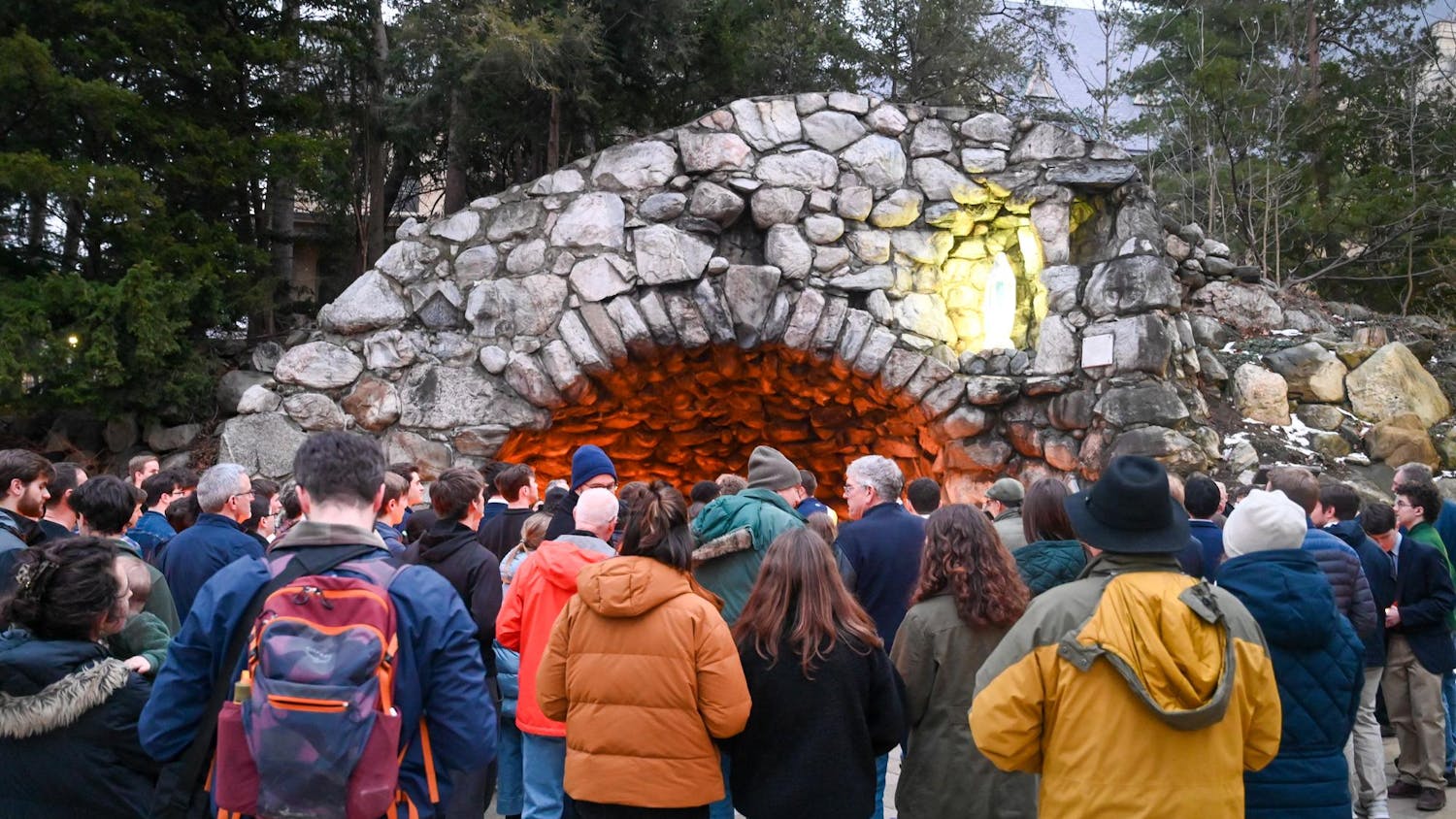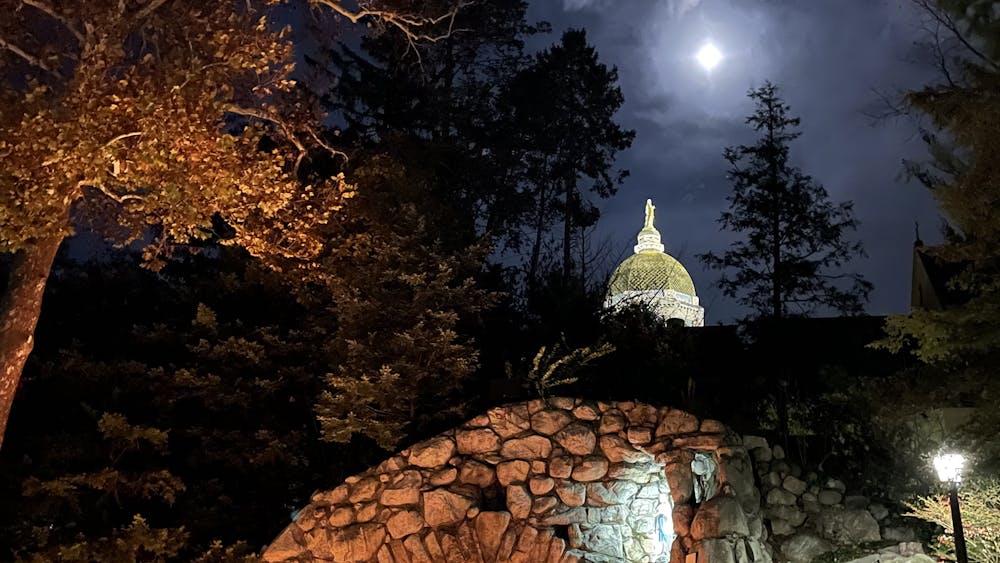Who they are:
Running for president on the ticket is junior Alex Kruszewski, a junior from Erie, Pennsylvania, majoring in finance and peace studies and living in Dillon Hall. Kruszewski has previously served in student government under the Blais-Shewit administration as Executive Controller, where he worked with administrators on financial matters, including tuition and club funding.
Junior Julia Dunbar joins Kruszewski on the ticket, running as vice president. Dunbar, a Fairfax, Virginia, native and resident of Howard Hall, is majoring in neuroscience and behavior. Throughout her time at Notre Dame, Dunbar has been engaged in various projects at Notre Dame aimed at improving mental health on campus, serving as the director of the department of health and wellness in student government during her sophomore year.
Top priority: Putting a plan in place to decrease student tuition
The centerpiece of the Kruszewski-Dunbar agenda is decreasing student tuition, a project Kruszewski has been working on for the past year, developing a plan administrators had supported in the past, he said in an interview with The Observer on Saturday. Kruszewski — who cited similar models at European universities such as Oxford and Cambridge — claimed tuition could be cut in half in the next 15 years by creating endowments for yearly expenses which are currently included in tuition. If they assumed office, Kurszewski said he and Dunbar would set this plan into motion by launching a fundraising campaign among alumni.
Best idea: Creating a multicultural student center
In an attempt to fill empty spaces left by many campus partners moving to the Duncan Student Center, Kruszewski and Dunbar have proposed filling these empty spaces with a multicultural student center, which will help bring together underrepresented student groups and connect them with resources and faculty mentors. Dunbar said this center would create something good out of now-abandoned spaces.
Worst idea: Bringing a Chick-fil-A to Eddy Street
One of the eight centerpieces of the Kruszewski and Dunbar campaign is bringing a Chick-fil-A restaurant to Eddy Street with continued development south of campus. While there are certainly students who would be in favor of this plan, there are no signs that administration and developers would consider this idea after ignoring student input on the idea for the Duncan Student Center, a development project which student government actually did have the opportunity to influence. Focusing on this project would likely divert time and resources away from issues which could directly benefit students on campus.
Most feasible: Completion of Callisto implementation
The ticket’s plan to deal with deal with sexual assault and reporting consists of several steps. Kruszewski and Dunbar proposed completing implementation of Callisto, a new software for reporting assaults and an initiative the Blais-Shewit administration has been making progress on for a year. Additionally, the ticket proposes a plan to establish a definition of consent in DuLac, where it does not currently exist. Dunbar said creating this definition would lead to easier and better-defined resolutions of cases of sexual assault reported to the University.
Least feasible: Repeal three-year housing requirement
While there are certainly feasibility problems with the ticket’s plan to decrease tuition — primarily that it in part relies upon donations in the beginning and requires complete administrative cooperation — there is less of a chance the University repeals the three-year housing requirement, as it has already passed approval of the Board of Trustees. Kruszewski and Dunbar proposed opening up a dialogue with administration on the issue, a strategy which is unlikely to change policy.
Bottom Line: Experience and big, hard-to-achieve goals
The key skill Kruszewski and Dunbar bring to the table is experience working in student government, whether it be Kruszewski’s financial experience or Dunbar’s background in mental health causes. This experience would help the ticket achieve many of its more reasonable goals, like the creation of a multicultural student center. That being said, many of the ticket’s bigger ideas — decreasing tuition and repealing the three-year housing requirement — seem hard to accomplish without complete administrative cooperation, which is by no means a guarantee.
Read More
Trending









